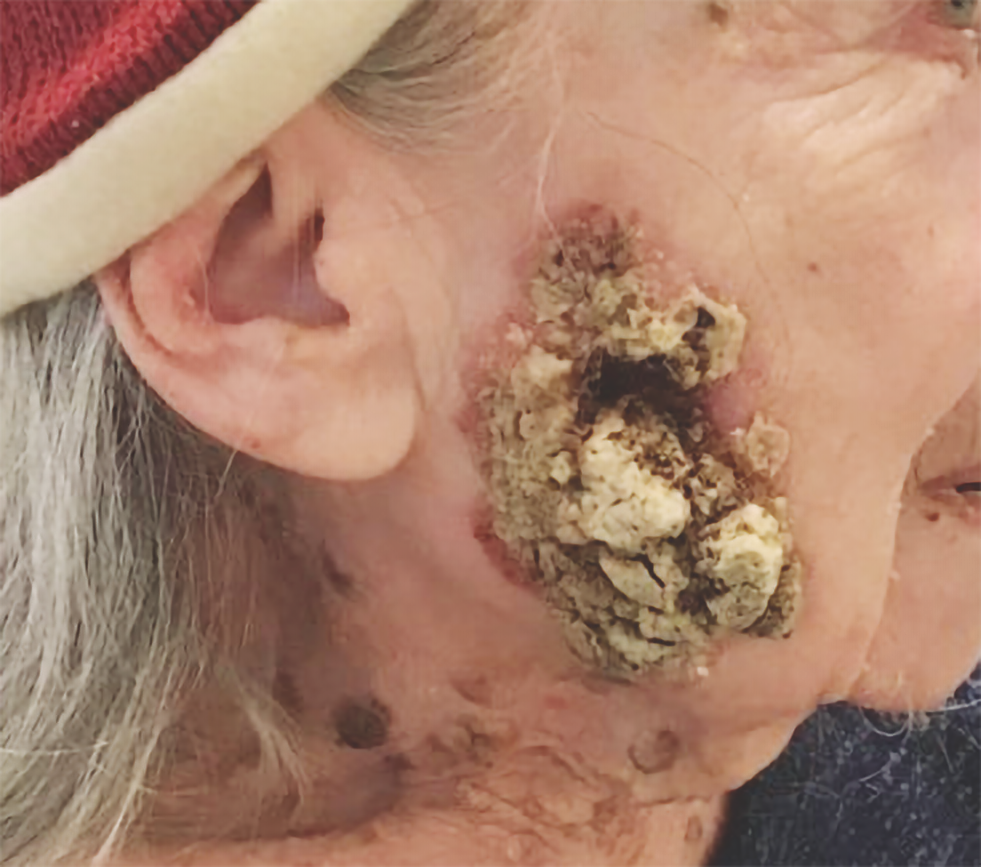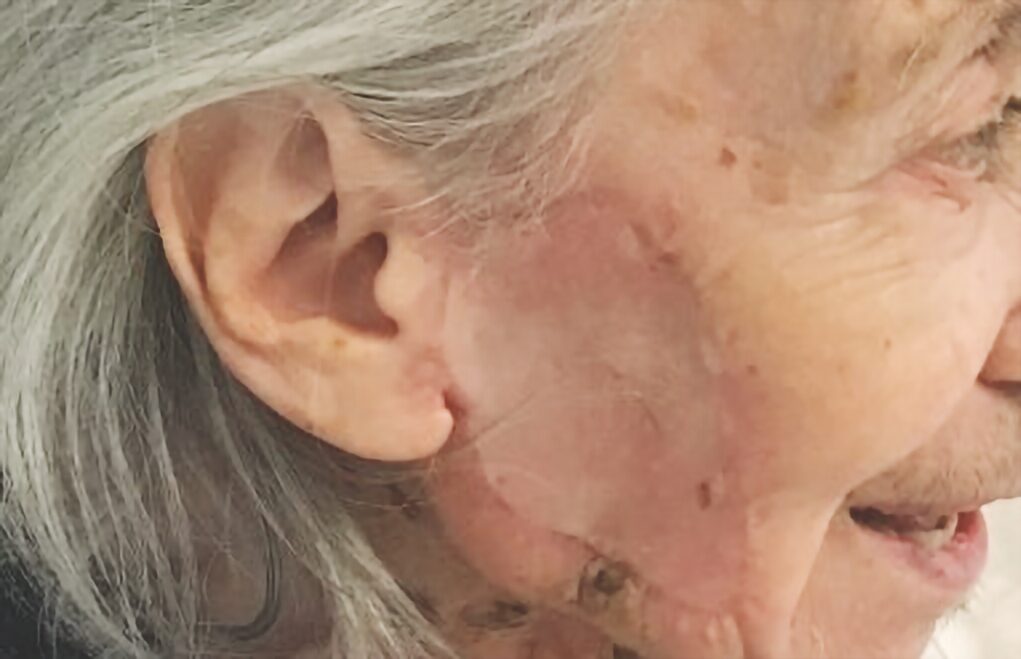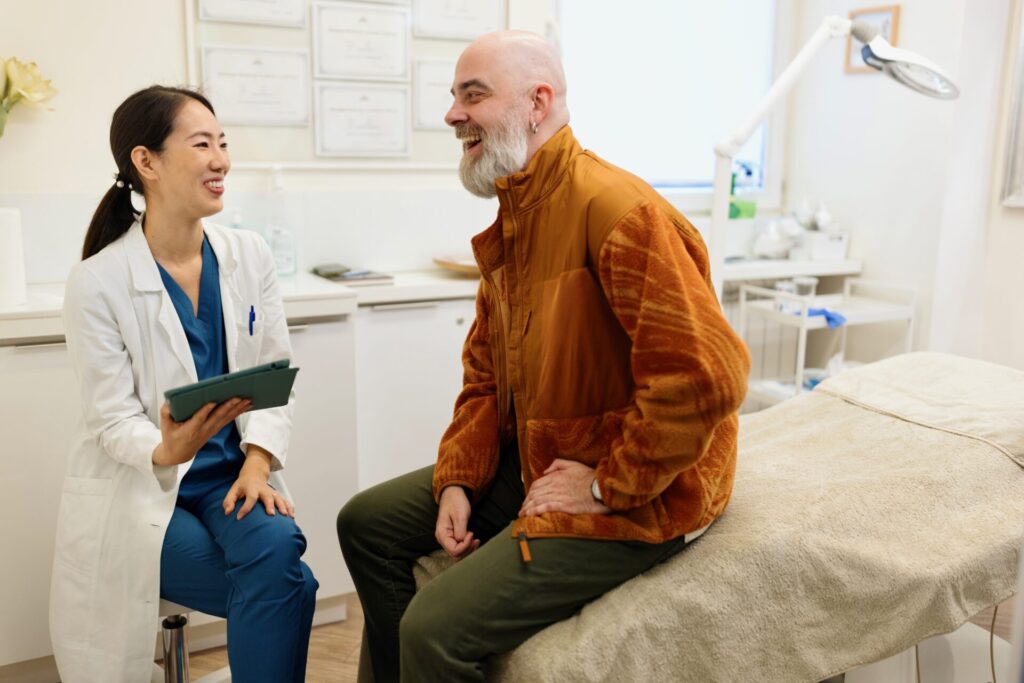Photo: Getty Images
Q: I’ve heard that surgery can be risky for older people. My father was diagnosed with a nonmelanoma skin cancer. How do I know if he should or shouldn’t have surgery?
Désirée Ratner, MD: There’s no one-size-fits-all answer. Each person, whether in their 70s, 80s or 90s, needs individual consideration. Age alone should never determine skin cancer treatment. The real concern is whether your father is healthy enough to handle the procedure and recover well.
Let me share a story of one such patient that illustrates why age alone shouldn’t determine care. Recently, I treated a woman in her early 90s with a large squamous cell carcinoma (SCC) on her cheek. Like many older adults, she likely developed skin cancer after decades of sun exposure. The risk does increase as our bodies become less efficient at repairing cellular damage with age. My patient saw several doctors before she got to me, and each one told her not to bother treating her cancer. It was too big. It wasn’t worth it. She was in a wheelchair, and they likely assumed she was too frail for surgery.
Those doctors’ assumptions were misguided. While frailty — a condition that makes it harder to bounce back from health setbacks — can be a serious concern for older patients, skin cancer surgery is different from major operations. The vast majority of skin cancer procedures require local anesthetic to numb the treatment area, making these far less taxing on the body than those that require general anesthesia.
Not only was my patient not too frail for surgery, her skin cancer was quite large and on her face, which is a high-risk anatomic location where surgery is recommended and curative. And while most skin cancers grow slowly, hers had the potential not only to break down, ulcerate and become infected, but also to spread to the lymph nodes and other organs since it had been neglected.
Factoring all of this in, together we decided on Mohs surgery, which is considered the gold standard for treating high-risk nonmelanoma skin cancers. Research has shown that Mohs is indeed safe for older patients who are generally healthy and functioning well, which she was. The process is fairly intensive, but straightforward: We numb the area, remove the cancer and examine it under a microscope while the patient waits. If needed, we take more tissue until the cancer is completely cleared. With this patient, I did two stages of surgery, and we were able to clear the cancer. Her reconstruction did require a skin graft, but it healed well. She could not have been happier.


Before and after: Doctors said the SCC tumor on this woman, in her early 90s, was too large to treat. They assumed she was too frail. She was not. Désirée Ratner, MD, was able to remove the tumor and get clean margins, and the patient was happy with how it healed. Photo courtesy of Dr. Ratner.
Her success, however, does not mean that every physically capable senior should automatically undergo surgery, nor does it mean Mohs is always the right option. In fact, the majority of nonmelanoma skin cancers are low-risk and may be easily treated with standard excision (also surgery), where the cancer is removed and closed in a single procedure and then sent to a lab for analysis.
Moreover, for certain slow-growing and asymptomatic basal cell carcinomas, active surveillance may be an appropriate approach. And importantly, surgery might not be appropriate for some patients due to factors like a compromised immune system, severe movement disorders that make it difficult to remain still, advanced dementia or very limited life expectancy where risks might outweigh benefits.
Even when surgery is medically called for, some perfectly healthy patients may simply decide they don’t want to undergo the procedure — and that’s their prerogative. As long as they understand all the implications of their decision, this personal choice should be respected. For those who choose not to have surgery or aren’t surgical candidates, alternative treatment options are available, like radiation therapy, though this requires daily treatments for several weeks, or cryotherapy (freezing with liquid nitrogen), which carries a higher risk of recurrence and needs closer monitoring.
What’s particularly encouraging is that senior patients generally heal remarkably well after skin cancer surgery. Though their thinner, more fragile skin may require special care, the results can be excellent. My patient from earlier was thrilled when her sutures came out after 10 days. The incision line was barely visible, restoring her normal appearance — something she hadn’t thought possible.
In the end, age alone shouldn’t determine whether you or a loved one has surgery. The key is to have an honest discussion with your doctor about your overall health, goals and concerns. Together, you can determine whether surgery, or another option, is right for you. — Interview by Holly Pevzner
ABOUT THE EXPERT
 Désirée Ratner, MD, is in private practice in New York City and serves as a clinical professor of dermatology at the NYU Grossman School of Medicine. Dr. Ratner specializes in the management of patients with high-risk skin cancers. She’s also the co-editor of Dermatologic Surgery and associate editor of the Journal of the American Academy of Dermatology.
Désirée Ratner, MD, is in private practice in New York City and serves as a clinical professor of dermatology at the NYU Grossman School of Medicine. Dr. Ratner specializes in the management of patients with high-risk skin cancers. She’s also the co-editor of Dermatologic Surgery and associate editor of the Journal of the American Academy of Dermatology.





